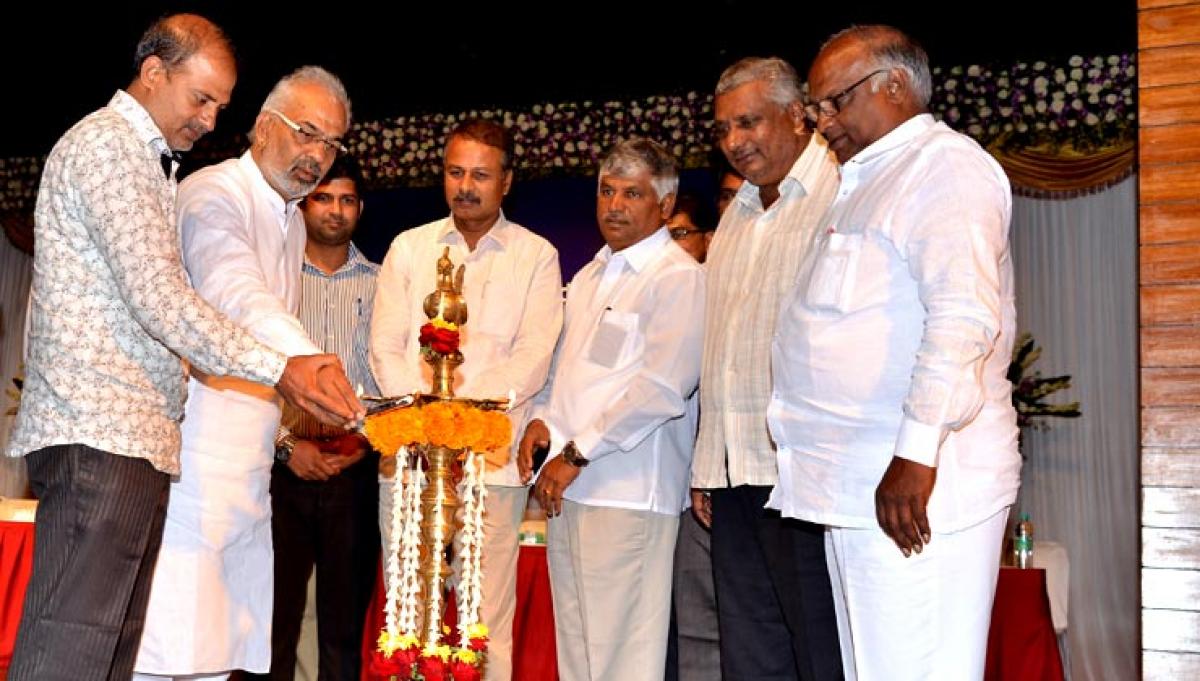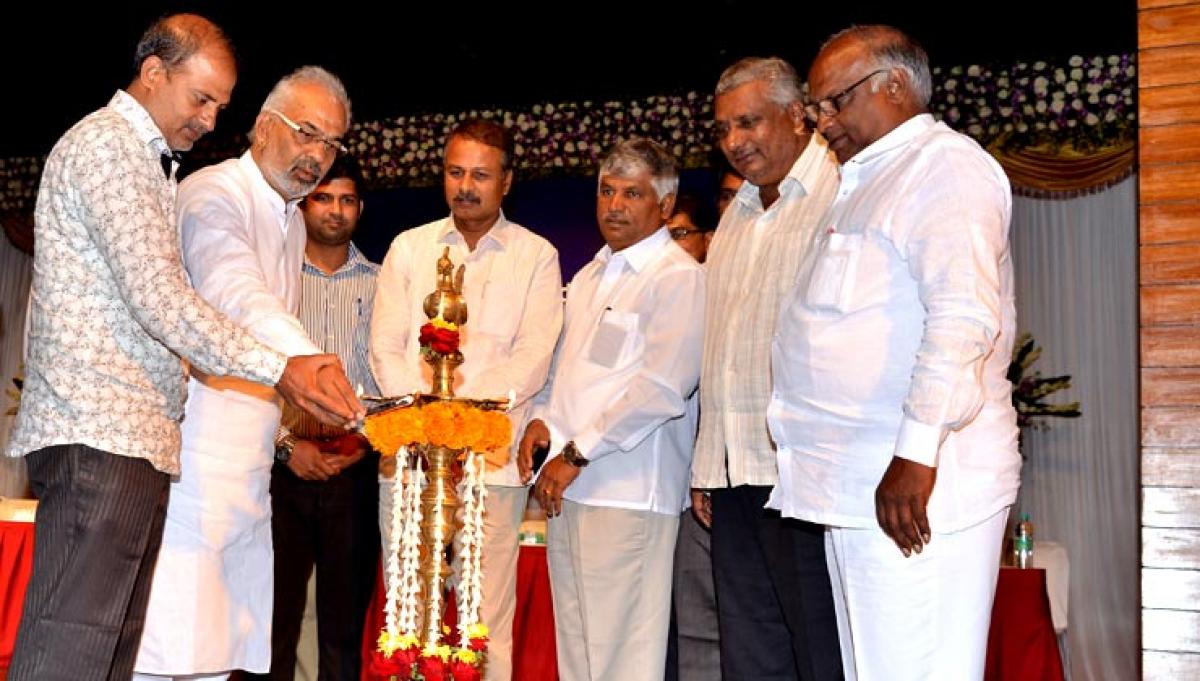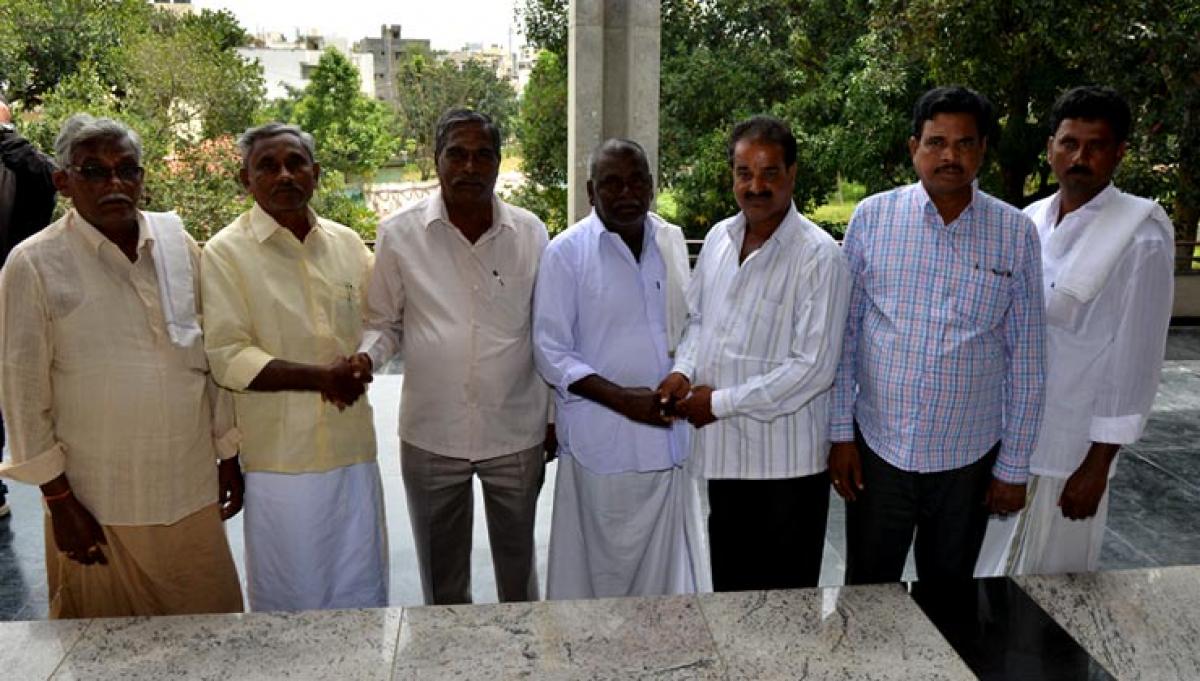Live
- Must-Watch OTT Originals in 2024: The Year’s Best Shows and Movies
- 40 Indian startups secure over $787 mn in a week
- India now formidable force on chess board
- Raghavendra Mutt pontiff visits Tirumala
- Whistleblower of OpenAI found dead in US apartment
- Trump’s US-first policy & India’s strategic latitude
- Chandrababu pays tribute to Potti Sriramulu and Sardar Vallabhbhai Patel
- India may miss TB elimination target
- Revolutionizing Women’s Health: The Era of AI
- Govt bill explains plan for ONOE
Just In
Tobacco FARMERS draw applause for adopting modern farming techniques


Tobacco FARMERS Draw Applause For Adopting Modern Farming Techniques. The Tobacco Institute of India (TII), today hosted the ‘16th’ TII TobaccoFarmers award’.The Tobacco Institute of India instituted these awards in 1999 with a view to felicitate and encourage..
Bengaluru: The Tobacco Institute of India (TII), today hosted the ‘16th’ TII TobaccoFarmers award’.The Tobacco Institute of India instituted these awards in 1999 with a view to felicitate and encourage the cigarette leaf tobacco farming community for its effort in adopting modern and scientific farming practices, which would help improve yields, produce improved varieties and make Indian tobaccos competitive in the global market. More importantly, through these awards, TII expresses its unstinted support to the cigarette tobacco farmers and acknowledges their significant socio-economic contribution to the country's economy.
 The event took place in the presence of Honourable Members of Parliament Shri R Dhruvanarayana, Shri PratapSimha and Shri C S Puttaraju along with the Members of the Legislative Assembly - Shri K Venkatesh, Shri H P Manjunatha and Shri A Manju. Shri Bipin Bihari Chowdary -Director, Auctions of the Tobacco Board, Bengaluru and Dr. D Damodar Reddy - Director of Central Tobacco Research Institute represented their respective organisations.
The event took place in the presence of Honourable Members of Parliament Shri R Dhruvanarayana, Shri PratapSimha and Shri C S Puttaraju along with the Members of the Legislative Assembly - Shri K Venkatesh, Shri H P Manjunatha and Shri A Manju. Shri Bipin Bihari Chowdary -Director, Auctions of the Tobacco Board, Bengaluru and Dr. D Damodar Reddy - Director of Central Tobacco Research Institute represented their respective organisations.
 The FCV Tobacco growers of Karnataka, Andhra Pradesh and Telangana are largely dependent on the Legal Cigarette Industry in the country. However, the cumulative impact of successive years of sharply escalating taxes and extreme tobacco control regulations continue to penalize the tax-paying, compliant legal industry causing sharp decline in volumes and leading to shift of consumption to non-cigarette tobacco product forms and contraband cigarettes which do not use domestic tobacco.
The FCV Tobacco growers of Karnataka, Andhra Pradesh and Telangana are largely dependent on the Legal Cigarette Industry in the country. However, the cumulative impact of successive years of sharply escalating taxes and extreme tobacco control regulations continue to penalize the tax-paying, compliant legal industry causing sharp decline in volumes and leading to shift of consumption to non-cigarette tobacco product forms and contraband cigarettes which do not use domestic tobacco.
© 2024 Hyderabad Media House Limited/The Hans India. All rights reserved. Powered by hocalwire.com






